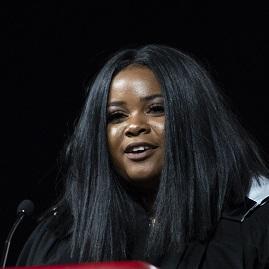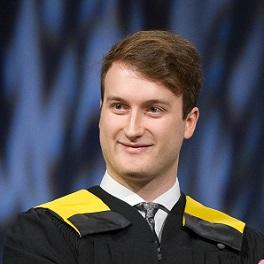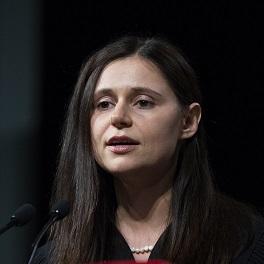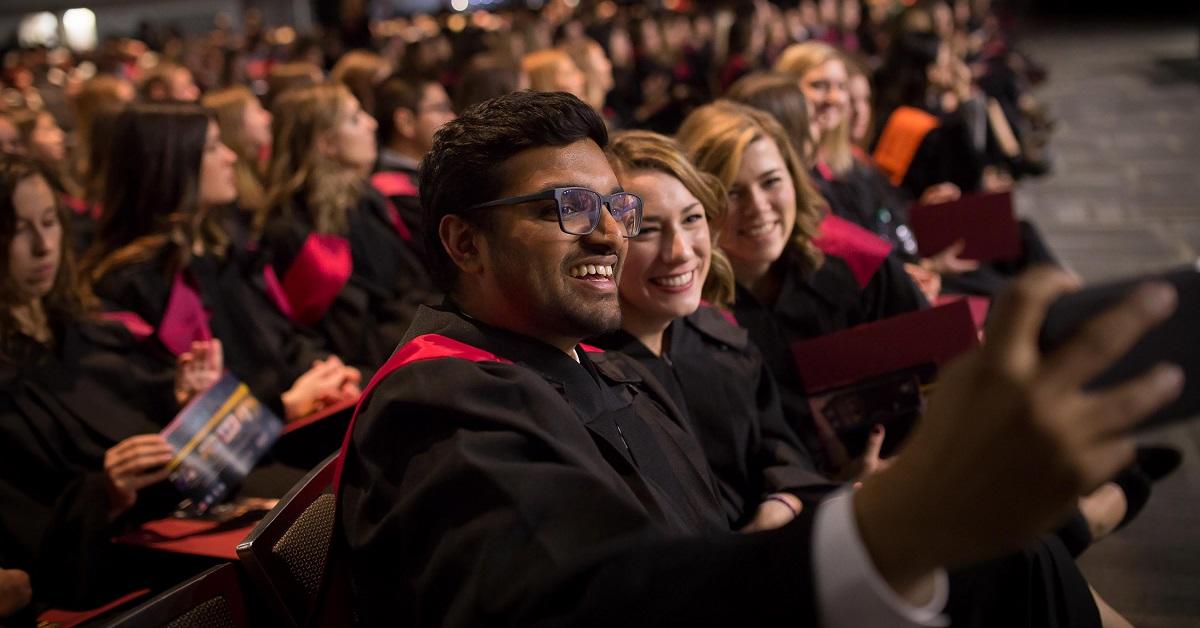


Meet the three valedictorians who spoke at uOttawa’s 2018 Fall Convocation on October 28 on behalf of 1,765 graduating students. Below are brief excerpts from their prepared speeches. The ceremonies were streamed on Facebook Live.
Shanna Ossé (BA) completed an honours in communication with a minor in digital humanities (in French). She has worked for the Canada Science and Technology Museum in visitor research and hopes to continue an academic career in creative representation and the implementation of reconciliation directives for museums.
Giving the chance to others to grow as we have grown in order to reach this moment is the greatest gift we could give. Let’s hold this to heart: our success does not depend on others’ failure, but on the love we give to those around us. Only through love may we transform our lives, and only with love will we transform the world. Whether it is managing, defending, teaching or developing new theories, if we do it with love, we shall never work a day in our lives.
Adrian Bailey (BSc) majored in biochemistry and is now studying at the University of Ottawa Faculty of Medicine. During his uOttawa undergraduate career, he was a research assistant at the Gambarotta Lab, a two-time NSERC award recipient and one-time Undergraduate Research Opportunity Program recipient for the Perry Lab.
Do things as they are assigned, not as they are due. This philosophy is why I was able to get a reasonable amount of sleep during exam season. In short, make sure to get done what you can get done as soon as possible, because it’s going to make for a very uneventful, smooth ride through what could be a very difficult time.
Natalia Stepaniuk (PhD) majored in comparative politics at the School of Political Studies. Her doctoral research, supported by the Drs. Peter and Doris Kule Doctoral Scholarship on Contemporary Ukraine, examines the ways civilians have mobilized to address the traumatic realities of the Donbas war. Her broader research interests include post-communist politics, civil society, gender politics and (de)militarization.
Now as we are leaving the University, life will present new challenges and opportunities. As we become professionals, scientists and citizens of tomorrow, I hope we stay curious and resilient. That we keep learning and exploring. That we do not abandon our academic pursuits and ways of thinking. That we apply our knowledge to challenge existing inequalities, to contribute to our communities. Ultimately, it is our responsibility to make the world a more diverse, more tolerant and more equitable place. I hope we succeed. Bonne chance à nous!
